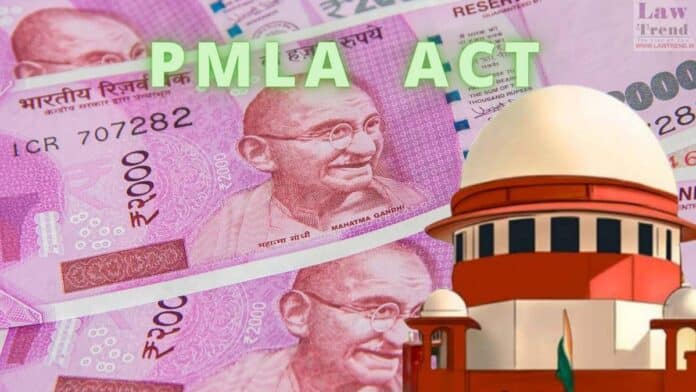Chhattisgarh on Wednesday became the first state to move the Supreme Court challenging the constitutional validity of the Prevention of Money Laundering Act (PMLA) alleging that central investigating agencies are being misused to “intimidate”, “harass” and “disturb” normal functioning of non-BJP state government.
The Bhupesh Baghel-led Congress government filed the original suit challenging the law under Article 131 of the Constitution which empowers a state to move the Supreme Court directly in matters of dispute with the Centre or any other state.
Chhattisgarh has thus become the first state to challenge the money laundering act and its provisions. Earlier, private individuals and parties have challenged the law on various grounds but the validity of law was upheld by a three-judge bench of the apex court last year.

The suit said several complaints are being received by the state government on behalf of its officials as well as the residents of the state that the ED is “torturing, abusing, and manhandling” them in the garb of conducting a probe.
It said because of this “blatant and excessive misuse” of powers, Chhattisgarh is being forced to approach the court.
“It is imperative to state that this is not the first occasion wherein the ED has resorted to an illegal modus operandi. On multiple occasions, the approach has been employed concerning various states that hold a political stance opposite to the one in power at the Centre. Such conduct amounts to a severe misappropriation and arbitrary use of power, which goes against the constitutional mandate. Investigative agencies are expected to be entirely independent and uninfluenced,” it said.
A bench of Chief Justice DY Chandrachud and Justice PS Narasimha was told by senior advocate Mukul Rohatgi and advocate Sumeer Sodhi, appearing for Chhattisgarh government, that the issue is of constitutional importance and requires an urgent hearing.
The bench said that the matter will be taken up for hearing on May 4.
The suit filed through Sodhi said the “present case is a perfect example of how the central investigation agencies are being misused by those in power in order to intimidate, harass and disturb the normal functioning of an opposition government in the state of Chhattisgarh”.
It said that the state is seeking interference of this court under its original jurisdiction bestowed by virtue of Article 131 of the Constitution, in light of a dispute that has arisen between the state and defendants — Union of India, state of Karnataka and Directorate of Enforcement (ED), involving questions of law and facts which affect the legal and constitutional rights of the state.
Giving the details of a particular case, which prompted it to approach the top court, the Chhattisgarh government said a FIR was registered at Kadugodi police station in Bengaluru against a person named Suryakant Tiwari for offenses punishable under various sections of IPC including assault or criminal force to deter public servant from discharging his duty and destruction of evidence.
“The complainant in the FIR is Income Tax Department and the allegation pertains to alleged illegal collection on levy of coal as well as attempts to influence public servants through corrupt and illegal means in the state of Chhattisgarh,” the suit said.
It said that the ED on the basis of the predicate offense, registered an ECIR dated September 29, 2022 and started conducting its investigation.
“The said investigation has resulted in indiscriminate surveys and raids at various departments and offices of the state government, and arrests of state officials,” the Chhattisgarh government said.
Referring to the provisions of the PMLA, it said that a criminal investigation process must adhere to the principles of openness, transparency, and established legal procedures.
It said that certain amendments have been carried out to the provisions of the PMLA by way of finance acts of 2015, 2016, 2018, and 2019 and these amendments to the PMLA through the route of the finance acts are liable to be struck down being colourable uses of legislative power, violative of Article 110(1) of the Constitution.







